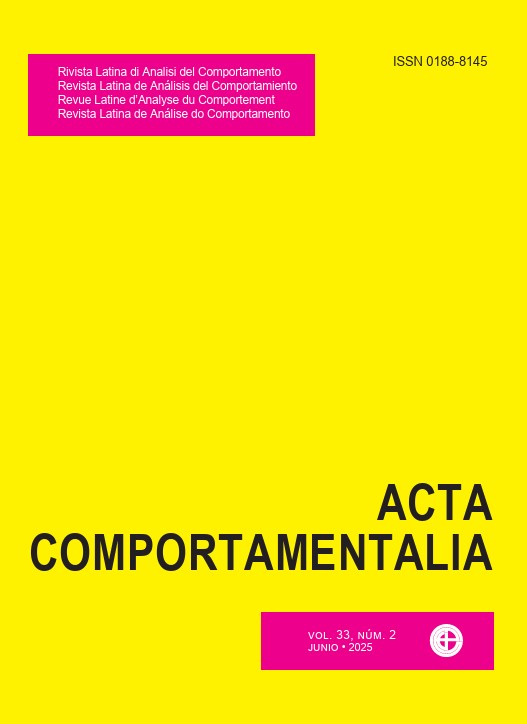Interactive Computer Training for Teachers of Children Diagnosed With ASD
DOI:
https://doi.org/10.32870/ac.v33i2.88585Keywords:
interactive computer training, remote teaching, teacher training, social play, ASDAbstract
Applied Behavior Analysis has produced technologies for the acquisition of socially relevant behaviors in the most diverse contexts and for several populations, particularly for people diagnosed with Autism Spectrum Disorder (ASD). The diagnosis of ASD among the population is becoming progressively more prevalent. Such high prevalence poses immense challenges for the health care and education network. In fact, the school context may become a challenging environment for individuals with ASD. In addition to the inherent difficulties in social interaction that characterize ASD (which increase as schooling becomes more complex), there is also the precarious training of teachers to deal with this segment of the population. This study evaluated the efficiency of an Interactive Computer Training (ICT) to enable teachers to implement a social play procedure training with children diagnosed with ASD. The dependent variable was the integrity of the application of the social play teaching procedure, measured through the percentage of
procedural components correctly implemented. The independent variable was the implementation of the training procedure via ICT. A multiple probe-experimental design was implemented. Three triads of teacher, child with ASD, and child with typical development from a public school participated in this research. The teachers individually went through initial probes and baseline sessions to evaluate their performance when trying to teach social play. Then, they were given the ICT on that subject. Such training procedure included, in one piece, instructions, video demonstrations, and multiple-choice questions in a pup-up format. Differential feedback was provided depending upon the participant’s performance (praise if the correct option was selected or corrective feedback if one of the wrong options was selected). Then, the participants were post-tested. The results demonstrate the efficiency of the ICT when complemented with punctual feedback. All teacher participants achieved performance accuracy higher than 90% within an average
training time of 1h07min. They also maintained performance with 92.8% in the generalization phase. At the follow-up phase, one participant was unable to maintain the learning criterion of 90%, falling to 71.4%, while another participant reached 100%. The data from this research corroborate previous studies that point out the effectiveness and efficiency of training via ICT, at this time, as a tool to promote competencies to teachers in the school environment concerning the assistance to children diagnosed with ASD. The present work encourages subsequent research and professional practice towards the development of computer-based procedures
to increase the support towards the development of competencies in teachers to deliver appropriate attention at school to children diagnosed with ASD.
Downloads
Downloads
Published
How to Cite
Issue
Section
License

<a rel="license" href="http://creativecommons.org/licenses/by-nc-sa/4.0/"><img alt="Licencia de Creative Commons" style="border-width:0" src="https://i.creativecommons.org/l/by-nc-sa/4.0/88x31.png" /></a><br />Este obra está bajo una <a rel="license" href="http://creativecommons.org/licenses/by-nc-sa/4.0/">licencia de Creative Commons Reconocimiento-NoComercial-CompartirIgual 4.0 Internacional</a>.






